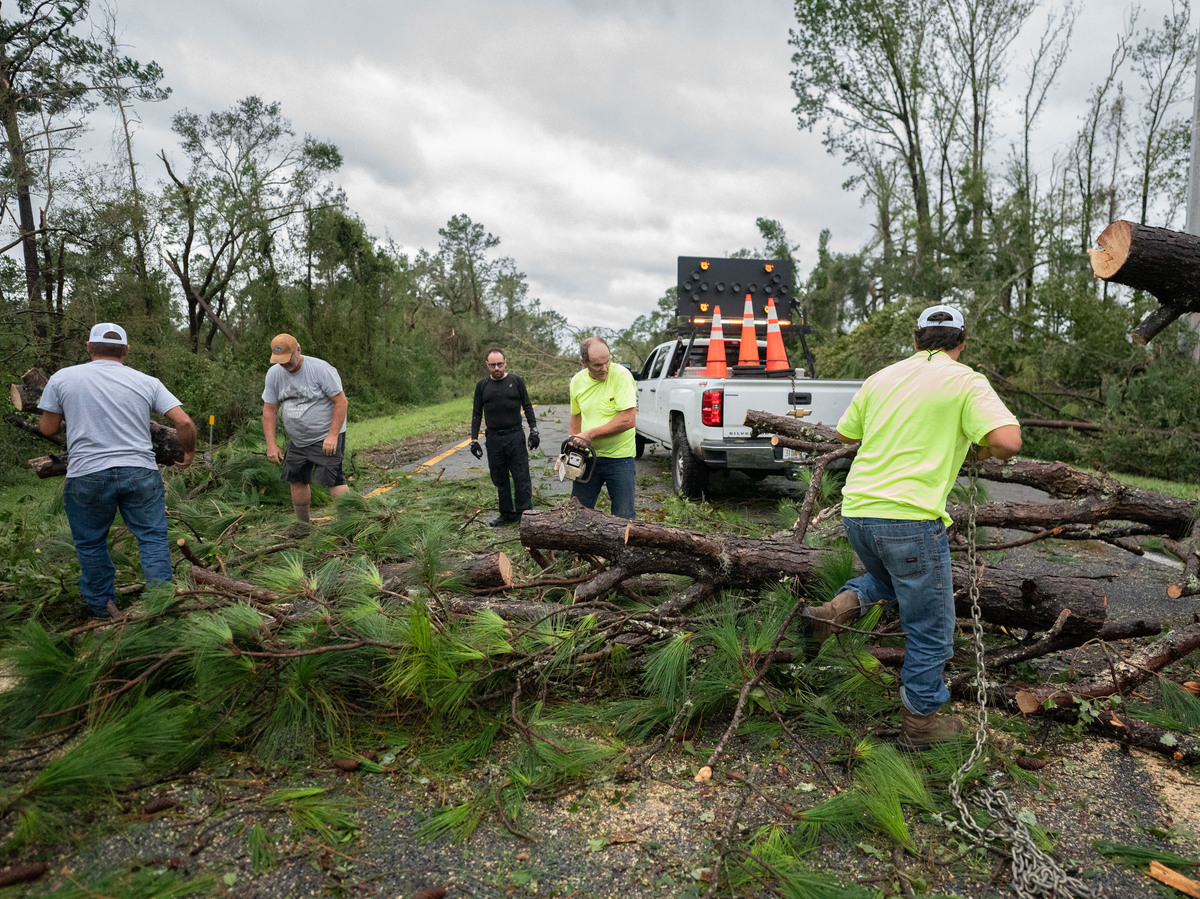
People work to clear I-10 of fallen trees after Hurricane Idalia crossed the state on August 30, 2023 near Madison, Florida. The storm made landfall at Keaton Beach, Florida as category 3 hurricane. Sean Rayford/Getty Images hide caption

People work to clear I-10 of fallen trees after Hurricane Idalia crossed the state on August 30, 2023 near Madison, Florida. The storm made landfall at Keaton Beach, Florida as category 3 hurricane.
Sean Rayford/Getty ImagesWhen people find themselves in the path of a hurricane they are faced with the question: should they evacuate or not? Who makes that call and how?
NPR's Mary Louise Kelly speaks with former FEMA administrator Craig Fugate about the decision-making process behind evacuation orders and why people should heed them ahead of hurricanes making landfall.
This episode was produced by Brianna Scott, Kai McNamee and Alejandra Marquez. It was edited by Adam Raney, Ashley Brown and Patrick Jarenwattananon. Our executive producer is Sami Yenigun.

 Live Radio
Live Radio